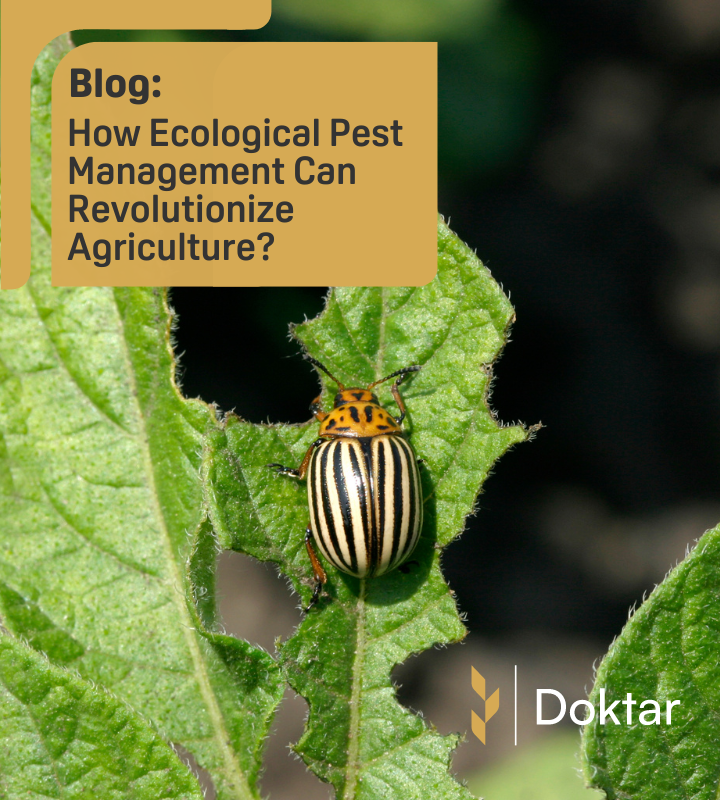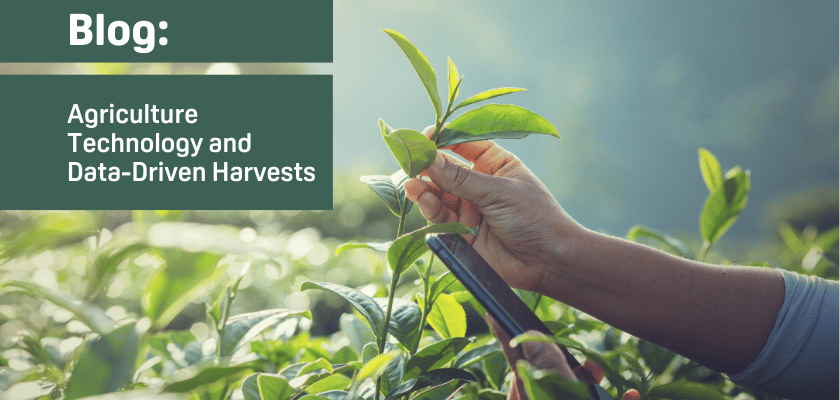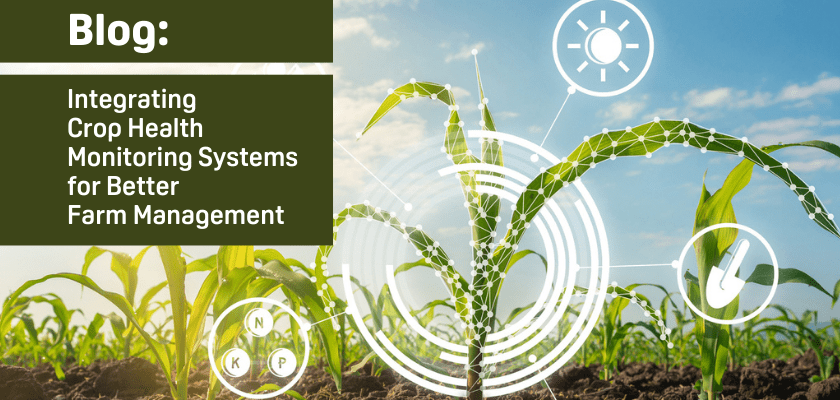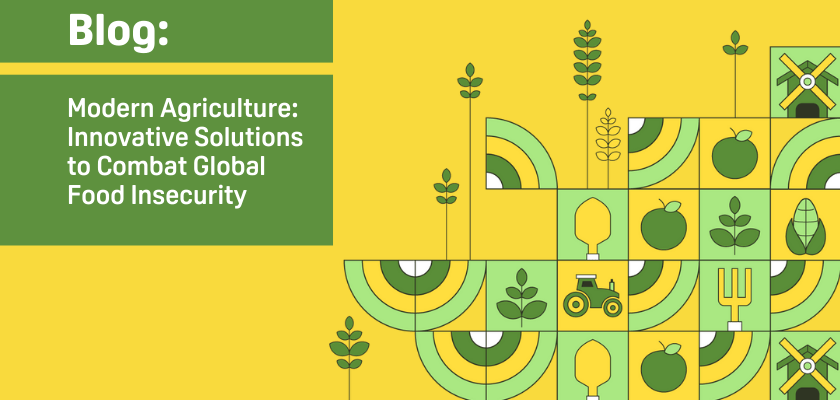

How Ecological Pest Management Can Revolutionize Agriculture?
Ecological pest management (EPM) integrates sustainable practices to manage pests, promote biodiversity and reduce chemical use. Tools like Doktar's PestTrap and IoTrack enhance precision and efficiency, lowering costs and environmental impact. EPM is essential for sustainable agriculture, protecting crops, human health, and the environment for future generations.
Published on 02 July 2024
Agriculture, a bedrock of human society, faces critical challenges today, particularly in pest management. While traditional methods using chemical pesticides have proven effective, they pose significant environmental and health risks. As a response, the agricultural industry is shifting towards sustainable pest management solutions. This blog delves into how ecological pest management can revolutionize agriculture, promoting sustainability and productivity for future generations.
What is Ecological Pest Management?
Ecological pest management (EPM), also known as green pest control, is an approach that integrates biological, cultural, mechanical, and chemical practices to manage pest populations in an environmentally sustainable manner. Unlike conventional methods, which rely heavily on synthetic chemicals, EPM emphasizes using natural predators, beneficial microorganisms, and habitat manipulation to keep pest populations in check. Additionally, advanced tools such as pheromone traps and digital pest trackers, like PestTrap, play a crucial role in EPM. These technologies help monitor and manage pest populations more accurately, thereby reducing the unnecessary use of pesticides. Pheromone traps attract pests using chemical signals, enabling early detection and targeted control. Digital pest trackers provide real-time data on pest activity, allowing farmers to implement precise and timely interventions.
Why is it Essential for the Future of Agriculture?
The future of agriculture depends on sustainable practices that can meet the growing demand for food without compromising the environment. Ecological pest management is essential because it promotes biodiversity, enhances soil health, and reduces the risk of pesticide resistance. It also supports the conservation of beneficial insects and pollinators, vital for crop production. By reducing reliance on chemical inputs, EPM helps mitigate the negative impacts of agriculture on climate change.
How Do Conventional Pesticides Affect the Environment?
Conventional pesticides, while effectively controlling pests, have numerous adverse environmental effects. These chemicals can contaminate soil, water, and air, leading to biodiversity loss and harming non-target organisms such as pollinators and beneficial insects. Additionally, pesticide runoff can enter waterways, affecting aquatic ecosystems and potentially causing long-term ecological damage. Over time, the accumulation of pesticides in the environment can lead to the development of resistant pest populations, necessitating even higher chemical usage. This creates a vicious cycle of dependency on harmful substances. Furthermore, the disruption of natural predator-prey relationships can make pest outbreaks more severe and frequent.
What are the Health Risks Associated with Chemical Pesticides?
The health risks associated with chemical pesticides are significant. Exposure to these substances can lead to acute and chronic health issues, including respiratory problems, skin irritations, neurological disorders, and even cancer. Farmworkers and communities near agricultural areas are particularly vulnerable to these risks. Ecological pest management offers a safer alternative, reducing the reliance on harmful chemicals and minimizing health hazards.
Why is it Important to Monitor Pest Populations Regularly?
Regular monitoring of pest populations is a cornerstone of effective pest management. By keeping track of pest levels, farmers can identify potential infestations early and implement control measures before the situation becomes severe. This proactive approach helps prevent crop damage, reduces the need for chemical interventions, and supports the principles of integrated pest management control.
One of the leading tools in pest monitoring is PestTrap, which stands out from other competitors due to its advanced features and technology. PestTrap utilizes state-of-the-art digital sensors and data analytics to provide real-time monitoring of pest populations. Unlike traditional traps that require manual checks, PestTrap offers automated reporting, allowing farmers to receive instant updates on pest activity through a user-friendly app, IoTrack. This feature significantly reduces labor and time spent on field inspections.
Additionally, PestTrap has machine learning algorithms that can accurately identify and differentiate between various pest species. This precision ensures that control measures are targeted and effective, reducing the need for broad-spectrum pesticides. PestTrap's integration with weather data and predictive modeling further enhances its capability, allowing farmers to anticipate pest outbreaks based on environmental conditions. These innovative features make PestTrap a superior choice in the market, offering a comprehensive solution for sustainable pest management.
What are the Best Practices for Early Detection of Pest Infestations?
Early detection of pest infestations is crucial for successful ecological pest management. Some best practices include:
1. Regular Field Inspections: Frequent and systematic inspections of crops are conducted to identify early signs of pest activity.
2. Use of Traps: Implementing pheromone traps, sticky traps, and other monitoring tools to capture and identify pests.
3. Predictive Modeling: This involves utilizing weather data and pest population models to predict potential outbreaks and plan timely interventions.
4. Biological Indicators: Observing natural predators and other biological indicators that can signal the presence of pest populations.
Early detection of pest infestations is crucial for successful ecological pest management. However, implementing best practices for early detection often involves significant expenditure items. Regular field inspections require labor and time; traps and monitoring tools can add to the costs.
To decrease these expenses, the deployment of advanced technology is essential. For example, using automated digital pest trackers like PestTrap can reduce the need for manual field inspections by providing real-time data on pest activity. Pheromone traps equipped with digital sensors can offer continuous monitoring, minimizing labor costs. Farmers can enhance the efficiency and cost-effectiveness of early pest detection practices by investing in these technological solutions.
The Role of Technology in Ecological Pest Management
Advancements in technology play a pivotal role in enhancing the effectiveness of ecological pest management, though they can also represent significant expenditure items for farmers. Solutions like Doktar's PestTrap and IoTrack are at the forefront of this technological revolution, offering precision tools that significantly aid in pest control efforts. PestTrap utilizes state-of-the-art digital sensors and data analytics to provide real-time monitoring of pest populations, reducing the need for frequent manual inspections. This automated reporting allows farmers to receive instant updates on pest activity through a user-friendly app, saving both time and labor costs.
IoTrack further complements these efforts by integrating weather data and predictive modeling, which helps anticipate pest outbreaks based on environmental conditions. This capability allows for timely and targeted interventions, reducing the reliance on broad-spectrum pesticides and the associated costs. While the initial investment in these technologies may seem substantial, their deployment can ultimately decrease overall expenses by improving the precision and efficiency of pest management practices. By leveraging Doktar's innovative tools like PestTrap and IoTrack, farmers can achieve a sustainable and economically viable approach to ecological pest management.
Conclusion: Embracing a Sustainable Future
Ecological pest management is more than just an alternative to conventional pesticides; it is a paradigm shift toward sustainable agriculture. Farmers can protect their crops, reduce environmental impact, and promote biodiversity by integrating various pest control methods and leveraging technology. As the agricultural sector faces increasing climate change and population growth pressures, adopting eco-friendly pest control practices is crucial for ensuring a resilient and sustainable future.
In conclusion, the agricultural revolution through ecological pest management is possible and necessary. By embracing these sustainable practices, we can create a healthier environment, protect human health, and ensure food security for future generations. It is time to move beyond chemical dependency and towards a more holistic and eco-friendly approach to pest management.
For those interested in exploring how Doktar's innovative solutions can transform your agricultural practices, visit our website for detailed information on all our products. Stay updated with the latest developments by following us on Instagram and LinkedIn, where we share insights, tips, and updates about our technologies and their impact on modern farming. Our mission is to ensure every agronomic decision is based on accurate information and optimization for a healthier, sustainable, and tastier world.

Agriculture Technology and Data-Driven Harvests
The convergence of agriculture technology and data-driven solutions represents the next frontier of innovation in farming. With companies like Doktar leading the way, farmers can leverage these advancements to improve productivity, reduce environmental impact, and secure a more sustainable future for agriculture. Whether through precision agriculture, sustainable agriculture, or cutting-edge smart agriculture technology, the future of farming is bright, and data is at the heart of this transformation. Technology's positive impact on this future should inspire and motivate us all.

Integrating Crop Health Monitoring Systems for Better Farm Management
Crop health monitoring systems revolutionize modern agriculture by enabling real-time insights into plant health, reducing losses, and promoting sustainability. Tools like Doktar’s CropMap and Orbit integrate advanced technologies, empowering farmers with data-driven decisions. By enhancing efficiency and sustainability, these systems are essential for future-proofing agricultural operations.

Modern Agriculture: Innovative Solutions to Combat Global Food Insecurity
Modern agriculture combats global food insecurity with precision agriculture, sustainable practices, and biotechnology. Tools like IoT, automation, and crop innovations optimize resource use, enhance resilience, and ensure stable food supplies. By integrating smart technologies, agribusinesses address challenges like climate change and resource scarcity, paving the way for a sustainable food future.
